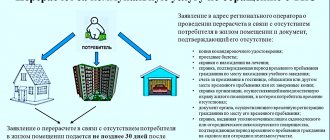Homeowners' association and TSN - what is it, explanation
A homeowners' association or HOA is a non-profit association of individuals who own common property. Their goal is to manage this property, as well as conduct general business activities.
TSN is also an association of owners. Explanation of the abbreviation - partnership of real estate owners. Both individuals and legal entities who have any property (apartment, house, land, commercial real estate, etc.) can join TSN. The purpose of TSN is to exercise the powers of the owner in relation to single property within the framework provided by law.
The concept of “TSN” appeared relatively recently. It was introduced into legislation in 2014 and replaced the HOA. However, no adjustments have been made to housing legislation, so the HOA remains as a form of government.
TSN and HOA are non-profit organizations, membership of which is absolutely voluntary.
The difference between HOA and TSN, differences between HOA and SNT
One day a German designer came to the conclusion: “If you want to do something well, do it yourself.” This aphorism well characterizes the reasons for the creation of non-profit organizations (NPOs) such as HOA (Home Owners Association), TSN (Real Estate Owners Association) and SNT (Gardening Non-Profit Partnership) - an association of real estate owners for the purpose of joint farming in the name of maintaining stability and prosperity of members NPO.
However, the question arises: if the founders of these NPOs pursue the same goal, why are there several options for these forms and what is this for? Below I propose to understand this issue by comparing HOA and TSN, TSN and SNT.
First of all, it is worth noting that HOA and SNT are types of TSN .
TSN - this is according to Art. 123.12 of the Civil Code of the Russian Federation, a voluntary association of owners of real estate (premises in a building, including an apartment building, or in several buildings, residential buildings, country houses, gardening, gardening or summer cottage land plots, etc.), created by them for joint ownership , use and, within the limits established by law, disposal of property (things).
According to paragraph 1 of Art. 135 of the Housing Code of the Russian Federation HOA is a type of TSN, which is an association of owners of premises in an apartment building for the joint management of common property in an apartment building or an association of several apartment buildings. Only owners of premises in an apartment building can become a member of the HOA.
An HOA can be created by the owners :
- in several apartment buildings that share a common boundary;
- several nearby residential buildings ;
- country houses with or without garden plots;
- garages and other facilities.
The HOA has the right:
- enter into a management agreement for an apartment building;
- determine an estimate of income and expenses for the year, including the necessary costs for the maintenance and repair of common property in an apartment building, costs for major repairs and reconstruction of an apartment building, etc.;
- establish, on the basis of the accepted estimate of income and expenses for the year of the partnership, the amounts of payments and contributions for each owner;
- perform work for the owners of premises in an apartment building and provide them with services;
- use loans provided by banks;
- transfer material and monetary resources under the contract to persons performing work and providing services for the partnership.
If an HOA is created in a cottage village , then this association is regulated by the Housing Code by analogy with an HOA in an apartment building.
At the same time, the HOA is obliged to:
- ensure proper sanitary and technical condition of common property in an apartment building;
- fulfill the terms of the contract;
- ensure compliance with the rights and legitimate interests of the owners of premises in an apartment building when establishing the conditions and procedure for ownership, use and disposal of common property, etc.
SNT is a non-profit organization established by citizens on a voluntary basis to assist its members in solving general social and economic problems of gardening, vegetable gardening and dacha farming (hereinafter referred to as a horticultural, vegetable gardening or dacha non-profit association). The activities of SNT are regulated by the Civil Code and the Federal Law “On gardening, gardening and dacha non-profit associations of citizens.”
Unlike HOAs, SNT can be created only on land plots, on all types of land plots (agricultural land, water and forest land, industrial land, land of settlements, land intended for construction, etc.)
There are several reasons for the creation of SNT: from the allocation of land for gardening by the municipality to spontaneous occurrence.
It is also worth noting that it is easier to register a TSN in the form of an HOA, since the HOA operates through the prism of the Housing Code, which is currently more convenient and thoughtful than the Federal Law “On gardening, vegetable gardening and dacha non-profit associations of citizens.”
To this day, there are many DNTs - dacha non-profit partnerships that arose in the USSR, however, this form of association of citizens was abolished in Law No. 217-FZ (read more) .
Lawyers do not find objective reasons for the elimination of DNT as a form.
A further comparison of SNT and HOA is presented in the table for clarity:
| Comparison criteria | HOA | SNT |
| What unites them | Subspecies TSN | Subspecies TSN |
| What is regulated | Housing Code of the Russian Federation | Law No. 66-FZ until December 31, 2018; Law No. 217-FZ from 01/01/2019 |
| Where exist | In apartment buildings, in cottage villages, in office buildings, in garage complexes, in apartments. | On land plots |
| What do they vote with? | Squares. 1 vote = 1 sq.m. In practice, people sometimes vote in precincts, if this is provided for in the charter. | Plots, squares, “over the heads”, mixed forms. The specific principle is reflected in the charter. |
| Who creates | General meeting of owners with a quorum of 50% + 1 vote | Founders. According to Law 66-FZ, there must be at least three of them. According to Law 217-FZ - no less than seven. |
| Who runs the Partnership | General meeting of members, board, chairman of the board | General meeting of members, a meeting of authorized representatives, a board, and a chairman of the board can be elected |
| Who liquidates (besides the court) | General meeting of members, general meeting of owners (if less than 50% of the owners in the house have joined the HOA) | General meeting of members |
| Who can be a member of the partnership | Individuals and legal entities, owners of real estate within the boundaries of the partnership | Individuals and legal entities, owners of real estate within the boundaries of the partnership. From 2021, legal entities cannot be members of SNT (Law 217-FZ) |
| Membership books | No | Eat |
| Acceptance as a member of the partnership | Upon submission of an application for entry . | After the decision on the entry of a new member is made by the general meeting of members of the partnership |
| Notice period for holding a general meeting | No less than 10 days | At least 14 days in advance |
| Forms of holding a general meeting | Full-time Part-time Part-time Part-time | Full-time Part-time Part-time (from 2021 according to 217-FZ) |
| Payment principle | All owners pay the same tariff regardless of HOA membership. In this case, the tariff is determined only by members of the HOA | Since 2021, according to law 217-FZ, all owners determine tariffs and pay equally regardless of membership |
Call us at: +7 (495) 968 44 34, and we will advise you
Author: Polina Alekseevna Koval , intern at the law firm Subscriber Consult
comments powered by HyperComments
What is the difference between TSN and HOA?
Unlike TSN, the HOA specifies the subject of management or improvement. This could be an apartment building or private residential buildings. Thus, the first difference is that only owners of residential buildings can be in the HOA, while owners of commercial real estate and land can also be in the HOA.
The second difference is in the composition of possible participants. Only private individuals and citizens can join the HOA. Organizations are allowed to join a real estate owners' association. Along with the composition of the participants, the list of their rights and obligations has also changed.
The purpose of creating non-profit organizations also differs. An HOA is created to resolve issues related to the improvement of adjacent territories and meet the important needs of residents (for example, carrying out the necessary communications).
A homeowners' association has slightly different goals. The main reason for creating such an organization is not the improvement and improvement of living conditions, but the management and disposal of common property. For example, renting it out, if necessary. Management is carried out, including the maintenance of property, its preservation and increase.
The activities of both non-profit organizations are carried out on the basis of the Charter and provide for the formation of a sole governing body. However, controlling and executive bodies are additionally introduced into the TSN, which is not done in the HOA.
Important decisions regarding the fate of real estate in TSN are made by individual members of the partnership. In HOAs, such decisions are made at a general meeting.
The taxation system for non-profit organizations is also different. Activities in HOAs can be conducted using a simplified tax system. For TSN, the transition to the simplified tax system is not possible.
What is TSN and when did it appear?
What is TSN? The Real Estate Owners Association is a voluntary association of residential property owners, which also includes buildings and land plots. The partnership is created to determine the order of public ownership and use of housing in a legal manner. The community exists on the basis of the legal right of the owners of common areas to contribute to the improvement of common property.
The common property of the building belongs to all members of the partnership on the basis of shared ownership. The Real Estate Owners Association as a separate form of legal entities was introduced on the basis of Law No. 99-FZ in 2014. According to this law, TSN may include legal entities that are owners of various types of real estate, including premises of apartment buildings, office buildings, land plots and other objects.
The main purpose of creating TSN is to resolve economic issues regarding the maintenance and operation of housing. It is established by law that TSN is a voluntary association of owners, created for the joint ownership and use of property under common ownership rights. The supreme body of the partnership has the right to establish and regulate the amount of generally obligatory utility payments of the members of the partnership. According to the method of management, TSN as a legal entity is classified as a corporate type. The management and conduct of TSN activities is regulated by the Charter.
Property Owners Association: Pros and Cons
The following advantages of a real estate owners' association can be highlighted:
- When a citizen or legal entity cannot resolve any issue regarding the management and improvement of property, TSN will come to the rescue. This will save the owner time.
- Another advantage of TSN is the management of property by a certain circle of persons. Of course, if the management is carried out competently and professionally.
- TSN is focused on managing and increasing property. This means that owners who have entered into a partnership can count on the profit received from competent management of real estate to be used to improve the property and general needs.
- All economic activities of TSN are completely open. This is an undeniable advantage of the partnership - each member can trace, among other things, the flow of funds.
Dear readers! We cover standard methods for solving legal problems, but your case may be unique. We will help you find a solution to your problem for free
— simply call our legal consultant at:
+7 (495) 128-73-40 (Moscow)
+7 (812) 603-71-55 (Saint Petersburg)
8 (800) 302-33-75 (free call within Russia)
It's fast and free ! You can also quickly get an answer through the consultant form on the website.
Disadvantages of a property owners' association:
- A significant drawback of TSN for many owners is that the opinion of the majority will not be taken into account when making serious decisions. However, even in the activities of HOAs, owners do not always have the right to influence the measures taken.
- Since TSN is a legal entity, the organization can declare itself bankrupt.
To create a TSN you need to obtain a license. Licensing of such activities is regulated by Art. 192 Housing Code of the Russian Federation.
Advantages and disadvantages of HOAs
Advantages of a homeowners association:
- Homeowners are not always able to resolve issues regarding improvement and improvement of living conditions. It is much easier to contact the HOA. For example, cleaning the surrounding area is not always possible for the owner. But the HOA can take on this concern and enter into an agreement with any organization to clean up the area. Also, an HOA can resolve many conflict situations with neighbors without bringing the matter to trial.
- Each homeowner who has joined the HOA can influence decision making. The opinion of the majority of owners will be taken into account, for example, at a meeting to determine which management company to start cooperation with.
- The financial and economic activities of the HOA are open. This information can be obtained by any interested member of the partnership.
- An HOA can operate on the simplified tax system. This means that the tax burden will be small.
- An HOA is not difficult to create. The activities of HOAs are not subject to licensing.
Cons of HOA:
- A large number of membership fees, which ultimately add up to a “round” sum. However, despite this, the total amount is lower than usual utility bills for landscaping.
- A significant disadvantage of the HOA is the need for the minority to submit to a decision supported by the majority.
Homeowners' association, in essence, is an organizational form of TSN. However, based on the identified advantages and disadvantages, a decision can be made to join. A consultation with a professional lawyer will help you find out in more detail what the risks of joining a HOA or TSN are.
Which is better: TSN or HOA?
Federal Law No. 99 of May 5, 2014 amended the Civil Code of the Russian Federation, according to which the activities of HOAs are abolished. However, they do not have to re-register their organizational form in TSN. This applies only to newly created partnerships.
Despite the fact that re-registration of an HOA into a TSN is not necessary, many homeowners’ associations are engaged in obtaining a license and re-registering the organizational and legal form.
This transition is due to the fact that the majority of owners have neither the time nor the desire to participate in the activities of the partnership. They have no time to attend meetings or make any decisions. The owners believe that their task is one - to pay utility bills on time for services provided. Therefore, independent decision-making by TSN is only for the better.
Now there is a tendency to combine several houses into one HOA, and yesterday's HOAs are assigned new responsibilities regarding commercial real estate.
Law on the transformation of HOA into TSN
According to the amendments to the Housing Code of the Russian Federation that came into force in September 2014, all HOAs will be renamed TSN. And in the future, TSNs will function everywhere instead of HOAs. The adopted amendments concern the division of legal entities into unitary, sole proprietor and corporate associations. A list of organizational and legal norms for commercial and non-profit associations has been added.
Important! From 05/01/2015 the residential complex is scheduled to switch to licenses. Without a license, it is prohibited to operate an apartment building.
At the moment, there are only a few significant changes regarding the change in the type of HOA partnership:
- Changing the charter.
- Changing the emphasis of the HOA - management and use of common property to the implementation of the owner’s relations regarding the management company.
- Change of rights and obligations of corporation participants.
- Other points concerning the obligations of the partnership and the procedure for appointing executive bodies remained unchanged.
Regarding the positive and negative aspects regarding changes. Positive ones include changes in the charter and the introduction of supervisory and executive bodies. The structural association helps to establish relationships with housing and communal services. The negative thing is that the most important decisions will not be made by the owners of the houses, but only by authorized members of the partnership.








